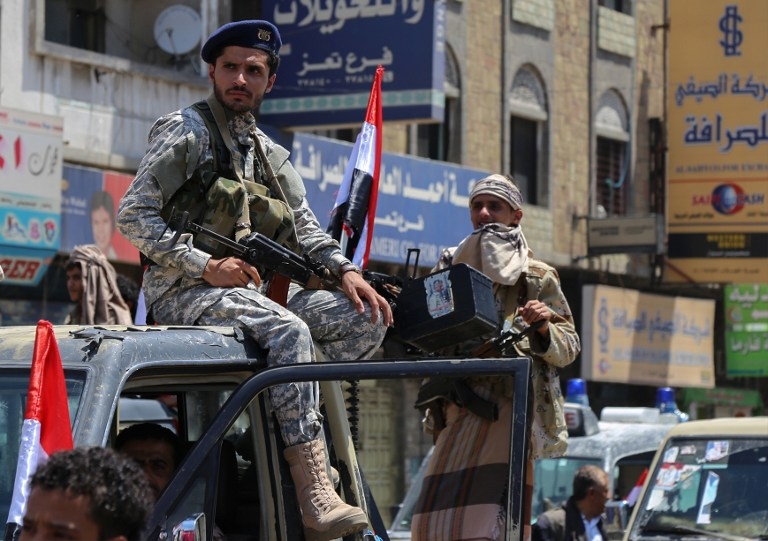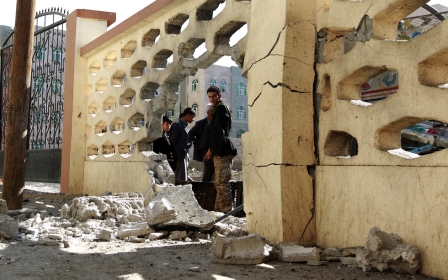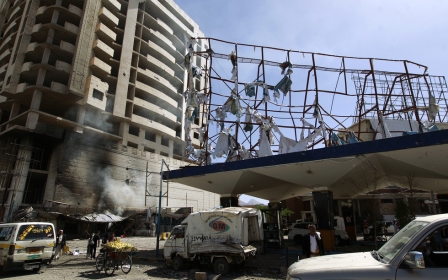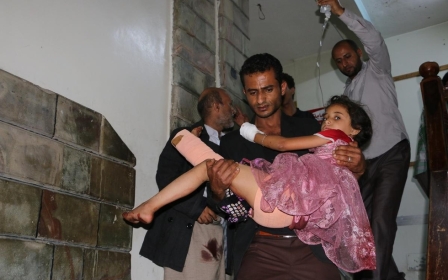UN peace efforts greeted with scepticism in Yemen

Hopes of a peace settlement in Yemen appeared to brighten this week with the UN announcing that Houthi rebels had accepted the terms for negotiations requiring them to withdraw from territory captured during months of conflict.
But with the Houthis, who have been fighting pro-government forces backed by the Saudi-led coalition, already forced into retreat in many areas, and with fierce fighting continuing in the disputed city of Taiz, many Yemenis and government supporters remain doubtful about the prospects for peace.
Fadhl Al-Rabei, a political analyst and the head of Madar Strategic Studies Center in Aden, questioned whether the Houthis and former president Ali Abdullah Saleh, who has backed their campaign against the government of current President Abd Rabbuh Mansour Hadi, would abide by the terms of the UN peace proposals.
"The Houthis and Saleh's party know the strategic aspects of the war very well, and also they know when they fight and when they negotiate,” Al-Rabei told Middle East Eye.
“Even if the UN welcomed this step by the Houthis, the Yemenis will not welcome it as they believe that the Houthis and Saleh are evasive."
Al-Rabei said that the Houthis had rescinded on past peace agreements, and needed to stop fighting to prove their commitment to peace was genuine.
“The Houthis did not consider peace during months of talks, but when they found they could not face the resistance and the coalition forces they resorted to the UN to solve their problem,” he said.
Meanwhile, a spokesperson for the pro-government Popular Resistance in Taiz said that fierce fighting was continuing in the province and accused the Houthis of targeting civilians.
"No one can trust the Houthis, and if they want to accept the UN resolution they are supposed to stop fighting, but they do not prefer a peaceful solution." Rashad Al-Sharabi told MEE.
On Thursday, clashes were continuing in Dhubab district near to Bab Al-Mandab in Taiz province, and in Al-Wazya district, which connects Taiz with Lahj and Aden provinces.
"The Popular Resistance in Taiz will not stop fighting the Houthis until they leave Taiz, and the resistance does not care about negotiations or agreements that allow the Houthis to kill the civilians and invade the provinces," said Al-Sharabi.
Meanwhile, Hussein Al-Boukhaiti, a Houthi activist, told MEE that the while the Houthis were ready to accept the UN resolution, they believed that Saudi Arabia would reject it.
"The world blamed the Houthis for not accepting the UN resolution, and when they accepted it they said that the Houthis feared the coalition forces. The Houthis want to tell the world that they accept the peaceful solution unless they use force against us,” Al-Boukhaiti said.
Residents of Taiz city have endured a weeks-long siege by Houthi forces which has prevented humanitarian aid and water supplies from reaching the population.
Arafat Mohammed, a shopkeeper in Al-Masbah district in Taiz, told MEE that the price of 10 litres of water cost YR400 ($1.8), while it used to cost YR50 (23 cents).
"The advancing of the Resistance and the Saudi-led coalition forced the Houthis to do a new step of manoeuvres, and they still did not accept the resolution of the UN," Hadi's press secretary, Mokhtar Al-Rahabi, told Reuters on Thursday.
The terms of the UN peace resolution require the Houthis to withdraw from government institutions and territories they have captured and to hand over weapons they have seized from Yemen's military.
On Wednesday, the UN said that both the Houthis and Saleh’s political party had told mediators they accepted those terms, but a spokesperson for Hadi said the government would only engage in talks if the Houthis publicly accepted the resolution unconditionally.
The Houthis consider Saudi Arabia their main enemy in the war and since March have been attempting to take over areas and mountains near the border.
Saudi forces have so far prevented them from advancing towards the border but Al-Boukhaiti said the Houthis would advance in that direction if Riyadh rejected a peace deal.
"We know that Saudi Arabia will not accept the resolution, but the Houthis promise that there will be a severe reaction," he said.
Middle East Eye propose une couverture et une analyse indépendantes et incomparables du Moyen-Orient, de l’Afrique du Nord et d’autres régions du monde. Pour en savoir plus sur la reprise de ce contenu et les frais qui s’appliquent, veuillez remplir ce formulaire [en anglais]. Pour en savoir plus sur MEE, cliquez ici [en anglais].




